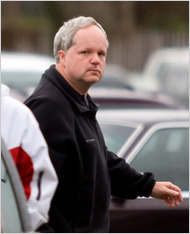
William F. Melchert-Dinkel got a thrill from successfully guiding suicidal people toward death. He posed as a sympathetic female using online conversations to encourage “dozens of people to kill themselves.” His counsel sometimes included explicit instructions in suicide methods. When one man asked, “Does anyone have details of hanging methods where there isn’t access to anything high up to tie the rope to?” Melchert-Dinkel was helpful enough to explain just how to proceed. The man’s body was found by his sister.
In May, Melchert-Dinkel was charged with two accounts of aiding suicide. A Minnesota resident, he might have enjoyed impunity had he operated from a different location. According to the laws of some nine countries, he did nothing wrong. In those nations, aiding someone to take his own life has some level of legal protection. Here in the U.S., three states—Oregon, Washington and Montana—have laws permitting assisted suicide in some cases.
How can such evil come to enjoy legal status? Not in one step. First the unthinkable becomes controversial, then discussable, then worthy of consideration, then reasonable. Finally it is established as a legal right.
As Darrow Miller will demonstrate in a forthcoming book, such changes in the culture are enabled by changes in its language. Fifty years ago Americans talked about the “sacredness of life.” Now it’s all about the “quality of life.” Death with dignity. The right to die.
The difference runs deeper than words: as we lose sight of the transcendence of being made in the image of God (the sacredness of life), we descend into the quality-of-life culture of euthanasia. Better to end life than live with pain.
The survival of a culture built on Judeo-Christian values is at stake. We who identify as Christians are called to make disciples, which includes nurturing the truth, beauty and goodness which oppose the evil of euthanasia.
– Gary Brumbelow






1 Comment